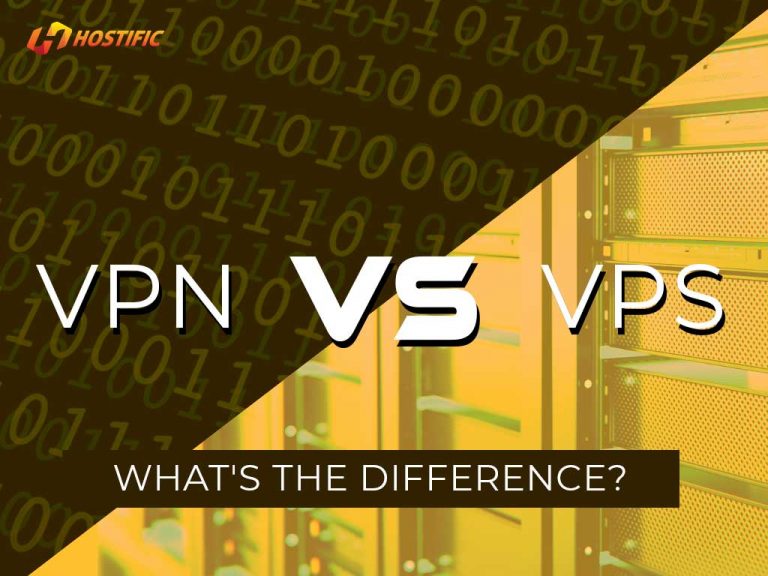Let’s face it: sometimes we get confused. Sometimes we can’t remember what exactly we heard, or what something does. There are a few reasons for this (including getting old), but mostly it’s because the words are so similar in sound. Like VPS and VPN. What is a VPS? What is a VPN? Is there a difference? So many questions, and today, we seek to provide you with the answers to these and other questions you may have about VPNs and VPSs.
Table of Contents
VPN: Virtual Private Networks
What does a VPN do?
VPN stands for Virtual Private Network. A VPN mainly keeps you safe when you use the Internet. It does this by using a two-step process. First, it takes your data and encrypts it. Encryption is a fancy way of saying your information is scrambled. This step helps to prevent hackers and other people you did not send the information to from easily reading and understanding your information.
Second, VPNs create an exclusive path, called a tunnel, through which it sends your now encrypted information. To appreciate the importance of this step, think of the Internet as the arrivals hall at an airport. Everyone must go through immigration to get into the country, but not everyone has to join the major lines. Some people have special lines, such as citizens or pre-checked persons. Virtual private networks create special lines for your information each time it sends it to reduce the chances of hacking even further.
How does a VPN work?
VPNs work by replacing your IP address when you are online. Each device using the Internet must have its own IP address. This is what identifies the device, and the physical location of that device. So, VPNs interrupt this process by replacing your IP address with its own, and as such, masks your location.
For example, let’s say you are banking online while using a VPN. When you send information to your bank, it passes through your VPN. This stop is important because this is where your VPN replaces your IP address with its own. It is this new IP address that it uses to finish the communication with your bank.
Can a VPN do anything else?
VPNs are used for multiple reasons these days. Besides keeping you safe online, VPNs can help you:
- Gain access to electronic information that is geo-locked. Remember how we said IP addresses help identify your physical location? By replacing your IP address with one that is not in the restricted area, VPNs allow you access. Great examples of this include Netflix and YouTube content.
- Reduce the amount of personal information that your internet service provider (ISP) collects about you. Because your ISP can view your browsing information, they are able to create an online profile of you. Some sell this information to marketers, who then tailor-make campaigns to target you across the Internet.
Are there any downsides to VPNs?
As with everything, there are drawbacks. For example, VPNs now replace the ISP as the source collecting the data (you can get a handle on this by choosing a VPN provider with a no-log policy). Another drawback is the amount of bandwidth required for VPNs to run effectively. You will experience a drop in your Internet speeds when you use your privet network. They are not foolproof, so take every reasonable precaution when online even when using a VPN.
So what are Virtual Private Servers
What is a VPS and what are they for?
VPS is the acronym for Virtual Private Server. A VPS is used in web hosting. There are several types of web hosting services, and sometimes VPS is said to be the best hosting option since it is cheaper than dedicated hosting but more efficient than shared hosting.
How does VPS work?
As the name suggests, it is a server that hosts all the files and other information that you need to make your website successful. Though you share the server with others, each web host is given individual compartments, so there is no sharing of resources as is the case with shared hosting.
Are there any advantages to using VPS?
Definitely!
- As we mentioned, you do not share resources, so there is greater efficiency seen on your website’s frontend.
- Scalability is possible, meaning that you can add more server space as your demands increase.
- You get root server access and more customer service support.
Are there limitations to VPS?
- It is more expensive than the more common shared hosting (but remember the added benefits).
- There are still some limitations that only a dedicated server can eliminate.
Is there anything else I should know about VPS hosting?
Do not relax your website backup regimen because you may have upgraded from shared hosting. Backing up your files and data should be a structured part of your website hosting duties. VPS allows you to operate a better performing website but does not eliminate threats on the backend.
Deciding on VPN or VPS
Now you realize that VPN and VPS are two different things used in two different ways. The one you choose is dependent on your needs. If you are looking at website hosting and performance, then VPS is what you give your attention to. If you are looking to remain safe when online or watch Netflix when you travel, then VPN is the solution.
Conclusion
Though they are similar in sound, VPS and VPN are different technologies and are not competing against the other. Choose the one that satisfies your needs. And remember, they are not synonymous, so cannot do the work of the other.






